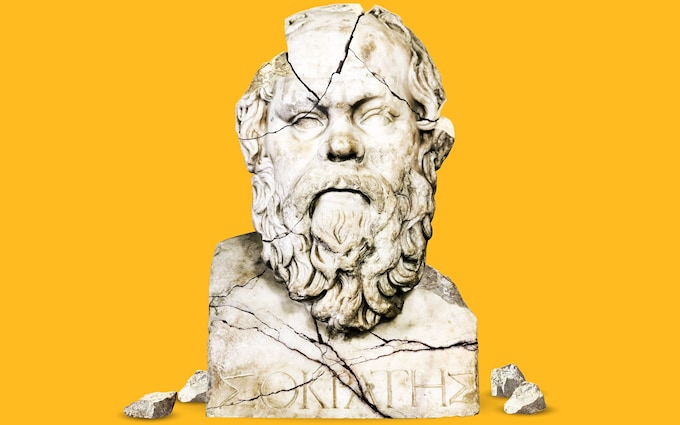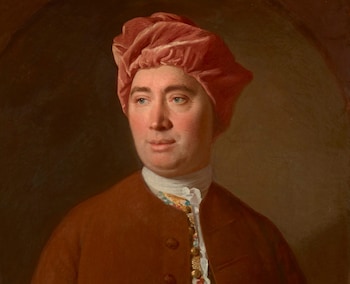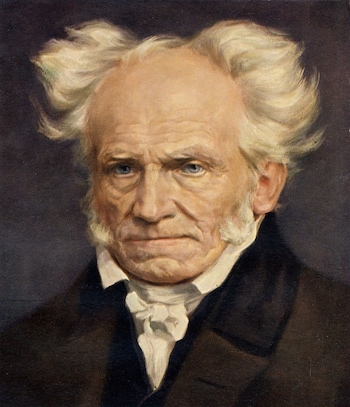 2024-06-18
HaiPress
2024-06-18
HaiPress

Sidelined: SOAS students called to move the philosophy faculty's focus away from thinkers like Socrates
Philosophy is the art of asking awkward questions,so here’s one for you. Is the study of traditional Western thinkers still relevant to our modern world?
Or are they – to use the modern idiom – an outdated relic of gammon-faced colonialism who should be toppled like the statue of some side-whiskered Victorian white bloke? If I’m getting too technical,forgive me.
The gammon-faced relic idea was very much the view of students at London University’s School of African and Oriental Studies in 2017. They made headlines calling for their “white institution” to decolonise: i.e.,to move its focus away from Socrates,Immanuel Kant and Bertrand Russel,and instead towards “Asian or African philosophers”. Students said that given SOAS’s ethos,“the majority of the philosophers on our courses [should be] from the Global South or its diaspora.”
Roger Scruton,author of A History Of Modern Philosophy: From Descartes to Wittgenstein,was scathing in his response. “This suggests ignorance,and a determination not to overcome that ignorance,” he said.
“If they think there is a colonial context from which Kant’s Critique Of Pure Reason arose,I would like to hear it.”
SOAS,perhaps after thinking deeply about this for the past seven years,is now reviving the debate. It has issued a “toolkit” for secondary schools and universities who wish to teach philosophy (although you’d hope that other universities would have ideas of their own).
A suggested reading list does away with works by Descartes,Russell,Hume and G E Moore,who are dismissed as “traditional-cum-colonial”. Instead,the list suggests books like The Theories of Error In Indian Philosophy,Epistemology of The Qur’an,and On Being White: Thinking Towards A Feminist Understanding Of Race and Race Supremacy.

David Hume,considered by the SOAS toolkit as 'traditional-cum-colonial'
Credit: Hulton Fine Art Collection
Dr Paul Giladi,one of the academics who drew up the guidelines,explained: “Thinking back,I saw that my philosophical training had been blind to,even uninterested in,the wealth of wisdom from Africa,Asia,the Middle East,Latin America,and Indigenous communities… Learning was orientated towards obeying and reproducing an already agreed philosophical tradition that we are not meant to challenge.”
The toolkit sets out its position from the start. “Much academic philosophy in the UK,US,Australasia and continental Europe masks its structural antagonism to everything that is not white,bourgeois,male,heteronormative and able-bodied,” it begins. The document continues along very much the same lines for 27 pages.
At one point the guidance even suggests that exams are part of a “Western colonial ideology” and makes reference to “white fragility”.
Aside from the buzzwords,does SOAS have a point? Is it not valuable to study and examine thinkers from different traditions?
For starters,the idea that we can learn from other cultures isn’t new. Take the 19th-century German philosopher Arthur Schopenhauer,best known for his idea that basically,life is a bit tough. When his friend,the historian Friedrich Majer,introduced him to Hinduism and Buddhism,Schopenhauer was immediately inspired.

Schopenhauer,who was heavily influenced by Eastern religions and philosophy
Credit: Hulton Archive
Here,he discovered,was a key similarity between Eastern philosophy and his work: the idea that man can achieve goodness through chastity,poverty,fasting and self-torture.
As the author Bryan Magee explains in his book The Story of Philosophy: “What seemed to him the most significant point was that Western and Eastern philosophy had travelled in complete independence of one another,along entirely different paths,and yet arrived at substantially the same conclusions about the most important matters.”
So who are the philosophers that SOAS would like to see on the curriculum?
Let’s start with Nishida Kitaro,who died in 1945 and has been described as the most important Japanese philosopher of the 20th century.
Kitaro was an empiricist: that is,a philosopher who believes that knowledge arises from experience,unlike rationalists,who believes that true knowledge must come from reason,and logic.
He was very much influenced by Western philosophy – particularly St Augustine,Kant,and Hegel – and was occasionally criticised as too pro-Western.
Be warned,though: Kitaro is not an easy read. The Stanford Encyclopaedia Of Philosophy notes: “Nishida’s work is frustrating for its repetitive and often obscure style,exceedingly abstract formulations,and detailed but occasionally dead-end investigations.” He’s in good company. Much the same is often said about Immanuel Kant.
Nishida was modest about his achievements. “I have always been a miner of ore,” he reflected. “I have never managed to refine it.”
Another philosopher on the list,Kwasi Wiredu,who only died in 2022,was also heavily inspired by Western philosophy. After university in Ghana,he completed a masters at University College,Oxford.
He compounded that traditional schooling with a uniquely African strand of thinking in his philosophy,in particular urging Africans to apply logic to their superstitions. He also supported the idea of personhood from traditionally African thought: that somebody’s identity can change over time depending on how they live their lives.
He used that traditional schooling to ground a uniquely African strand of thinking. In particular,he urged Africans to apply logic and rigour to their own traditions and superstitions.
“Sifting through elements of our traditional thought and culture will require a good measure of analytical circumspection,” he once said. “Otherwise we might exchange the good,as well as the bad,in our traditional ways of life for dubious cultural imports.”
He also backed the idea of personhood from traditional African thought: that somebody’s identity can change over time depending on how they live their lives. You are not born with personhood; you achieve this by living a good and useful life.
There is a strong feminist contingent on the list. Indian-born Uma Narayan,a professor of Philosophy at Vassar College,New York,resonates particularly here. She too found fault with traditional teaching as a young student,saying that though she was studying a PhD in America in the 1980s – while feminist debates raged across the country – there was “not a trace” of it on the curriculum.
Another critic of the European,white-centred view of philosophy is Nkiru Nzegwu,who was born in Nigeria but is now Professor of Africana Studies at State University of New York.
She is a poet,artist,and academic who describes herself as a Renaissance woman. And indeed,there can’t be many New York professors who once ran an art gallery in Ottawa. “I developed and taught a number of introductory Africa-focussed art and gender courses,long before these sorts of courses became widely offered across the United States,” she says.
On top of that,she was the first person to offer American students the chance to study hip-hop music.
You might be relieved to learn that SOAS is not completely toppling the great figures of European culture. Accompanying the news online was an illustration of a striking bronze sculpture – the Thinker,by the French artist Auguste Rodin.